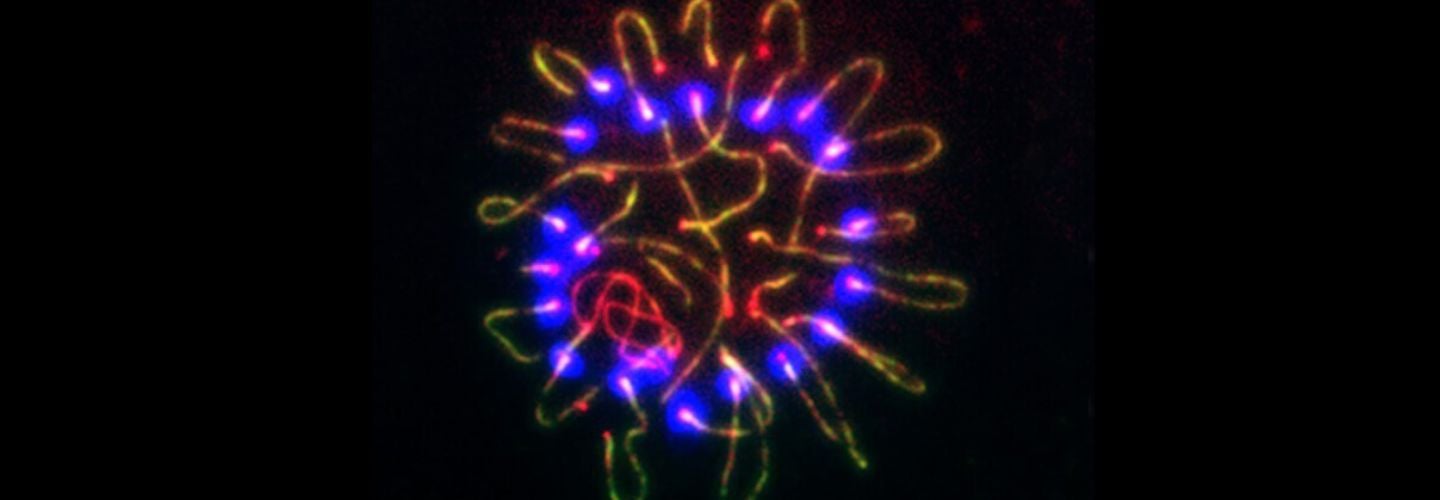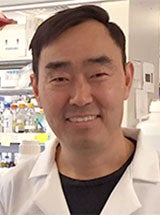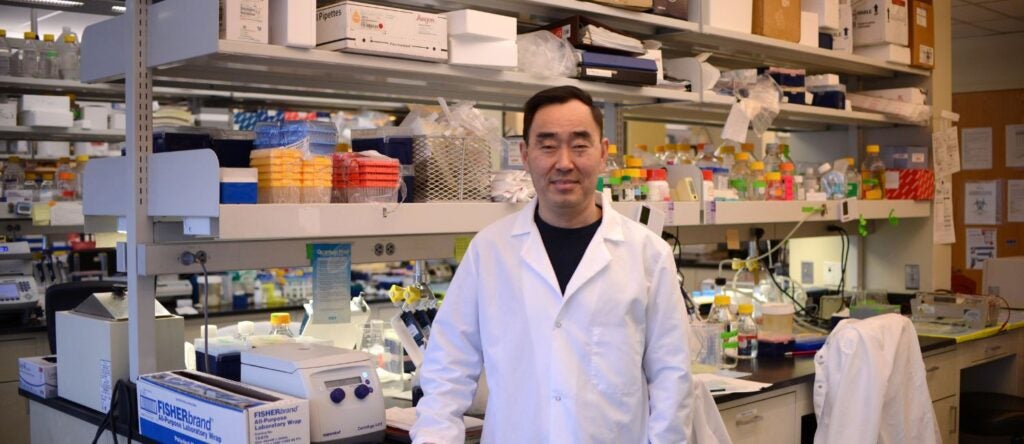
Center for Animal Transgenesis & Germ Cell Research
Overview
Scientists at the School of Veterinary Medicine performed pioneering studies in the development of transgenic techniques and were responsible for production of the first transgenic mouse (Ralph Brinster, VMD, PhD) and farm animals.
Capitalizing on years of foundation research, the Center for Animal Transgenesis and Germ Cell Research was established in 1998. The primary mission was to undertake innovative research on stem cell biology, germ cell development, and animal transgenesis.
Techniques have been developed to enable the modification of individual genes in animals and plants and thereby precisely alter inherited traits. These genetically altered animals and plants are called transgenic and are of enormous value in medicine and agriculture.
An improved understanding of the basic processes governing germ cell and embryo development and of the biology of gametes (sperm and oocytes) and embryonic stem cells will enable us to improve reproductive efficiency, generate animal models of human and animal disease, and help provide the knowledge base for regenerative medicine, as well as toward the treatment of infertility.
The Center provides a platform for intellectual interactions to facilitate research in reproductive biology across the school and the campus.
Research
Current studies at the Center for Animal Transgenesis & Germ Cell Research are focused on exploring the biology of germline stem cells, as well as male and female gametes:
- Study of genetic diseases in domestic animals.
- Study and manipulation of male germ line stem cells has implications for control of fertility, large animal transgenesis, and genetic preservation.
- Analysis of the molecular mechanisms involved in chromatin dynamics, homologous recombination, and chromosome segregation during meiosis will elucidate causes for infertility and birth defects as a result of aneuploidy.
- Elucidation of epigenetic control of transposable elements in the germline and across generations.
- Investigation and development of optimum cell culture media used for germ cell lines both in the laboratory and for use on the farm as assisted reproductive technologies.
- Study of molecular mechanisms of mammalian sperm motility and testicular degeneration has implications for treatment of infertility.
- In vitro derivation of gametes.
- Capacitation of stallion sperm and IVF.
Services
The Transgenic Mouse Core at the Center (Technical director, N. Adrian Leu; Faculty oversight: P. Jeremy Wang, MD, PhD, and Andrew Modzelewski, PhD) provides an array of embryological services for the generation and preservation of genetically engineered transgenic and gene knockout mice. The Transgenic Mouse Core is equipped with state-of-the-art equipment and is supported by fully trained personnel. It is located in a barrier, pathogen-free small animal facility supervised by trained veterinarians.

Director, Center for Animal Transgenesis & Germ Cell Researchy
P. Jeremy Wang, MD, PhD
Professor of Developmental Biology
Find Us
University of Pennsylvania
School of Veterinary Medicine
3800 Spruce Street
Philadelphia, PA 19104-4539

Penn Vet and Penn Medicine Researchers Receive Nearly $6 Million in Renewed NIH Funding to Study Epigenetics of Reproduction in Animals and Humans
A multidisciplinary group of researchers from the University of Pennsylvania’s School of Veterinary Medicine (Penn Vet) and the University’s Perelman School of Medicine (Perelman) have received $5.95 million in renewed…
